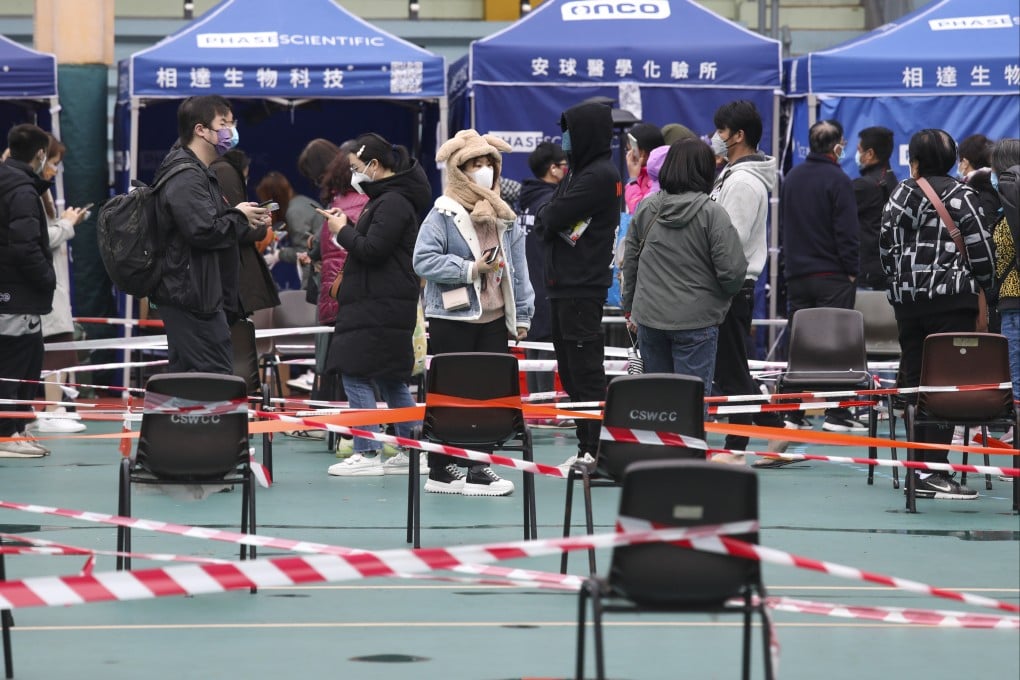Coronavirus: Hong Kong confirms daily record of 8,674 cases as officials reveal big difference in death rates between unvaccinated and those who received shots
- Latest data shows an 18-fold difference in death rates between vaccinated and unvaccinated, officials say
- As caseloads continue to climb, government tightens social-distancing rules yet again, with hikers and those doing outdoor exercise required to wear masks from Thursday

As the numbers continued to climb, the government tightened social-distancing rules yet again. A rule exempting country park users and those doing outdoor physical activities from wearing masks will be removed from Thursday, the same day a vaccine pass limiting entry to unvaccinated individuals at several venues is launched.
The number of diners per table at all restaurants will also be capped at two from Thursday, down from four for some eateries. A ban on gatherings of more than two households in private places has also been extended, with the rule expected to be in place until mid-April.
In neighbouring Shenzhen, Xia Baolong, director of the State Council’s Hong Kong and Macau Affairs Office, presided over the fifth meeting of a top-level coordination group set up to support the city’s anti-pandemic work.
He said mainland Chinese authorities would speed up the construction of makeshift hospitals, known as “fangcang” or “square cabin”, and a “contingency hospital” in Hong Kong and help the local government to prepare for citywide Covid-19 tests and unite all sectors to win the battle against the pandemic.
As Hong Kong officials raced to secure more facilities for those infected, a Post estimate found more than 50,000 patients were still at home waiting to be sent to government isolation centres or hospitals.
An electronic form to speed up the collection of data from patients and their close contacts to enable faster admission and triage launched on Wednesday morning but crashed by the afternoon, after receiving more than 1,000 responses.
